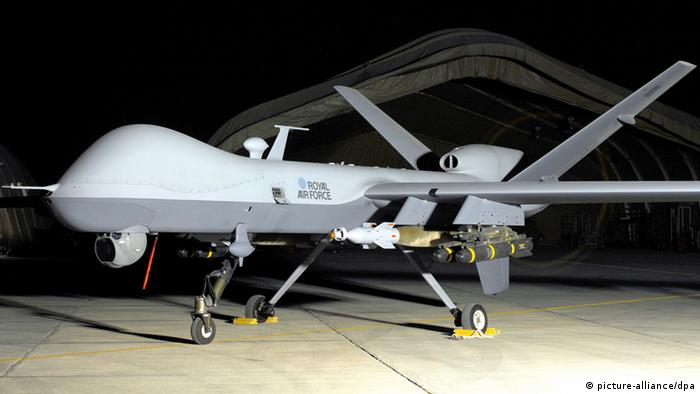The German government and military have made clear their wish to acquire armed drones to complement the existing unmanned surveillance fleet. According to a news report, this process has advanced in Washington.
The news magazine Spiegel reported on Tuesday that a German diplomatic visit to Washington was bearing military fruit.
According to a report on Spiegel's online portal, the US was ready to approve an official German request for three armed MQ-9 Reaper drone aircraft (formerly known as the "Predator B") and four ground control stations, to be filed in May this year. Spiegel cited a representative of the German Defense Ministry. According to the source, the US Congress approved the move in theory on April 10.
Germany already has unmanned aircraft, the nonweaponized Heron 1 drone, in service over Afghanistan. They are on loan until October 2014. The Bundeswehr has no unmanned aircraft with firepower.
Defense Minister Thomas de Maiziere and Interior Minister Hans-Peter Friedrich, both members of Chancellor Merkel's Christian Democrat alliance, conclude a joint visit to Washington on Tuesday.
De Maiziere was set to meet his US counterpart, Chuck Hagel, on Tuesday. Germany filed a preliminary request for the delivery of some form of drone aircraft early in 2012. The aircraft cost roughly $17 million (13 million euros) per unit. Germany was also reportedly considering the purchase of the Israeli-built Heron TP drone.
The issue of drone purchases prompted sometimes contentious debate in German parliament. Owing to its 20th-century history, Germany retains a strictly nonviolent, defense-only military mandate. Opposition politicians, and some within the government's ranks, have questioned whether unmanned aircraft armed with rockets are compatible with this.
A Forsa survey released earlier in April suggested that only 12 percent of Germans supported the use of armed drones in all circumstances. A majority of 59 percent approved the idea, however, provided that the aircraft were only used to ward off clear and present danger.
msh/mkg (AFP, dpa) DW DE

Comments